Turning Fiscal Challenge Into Full-Blown Crisis
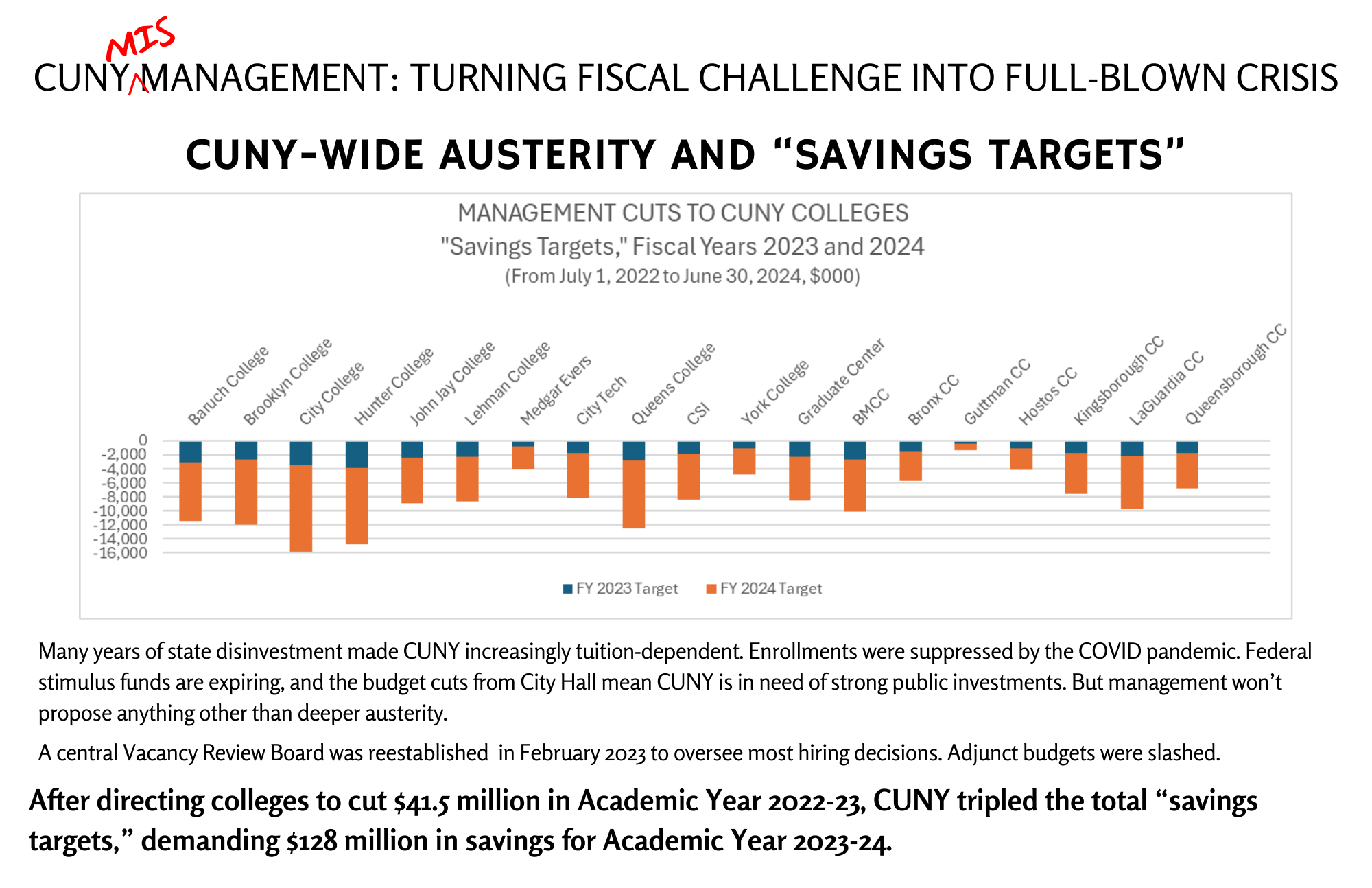
Many years of state disinvestment made CUNY increasingly tuition-dependent. Enrollments were suppressed by the COVID pandemic. Federal stimulus funds are expiring, and the budget cuts from City Hall mean CUNY is in need of strong public investments. But management won’t propose anything other than deeper austerity.
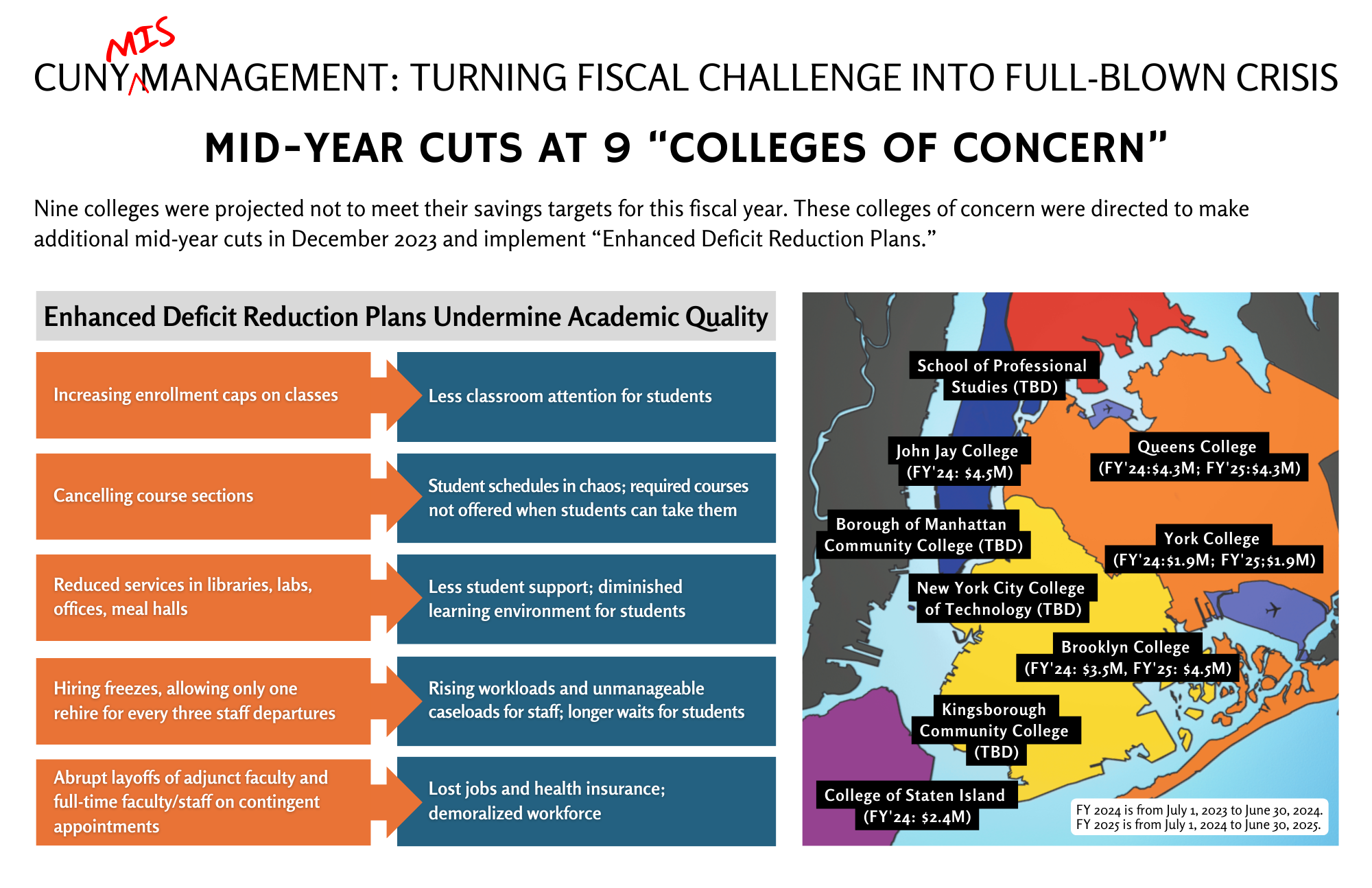
Nine colleges were projected not to meet their savings targets for this fiscal year. These colleges of concern were directed to make additional mid-year cuts in December 2023 and implement “Enhanced Deficit Reduction Plans.”
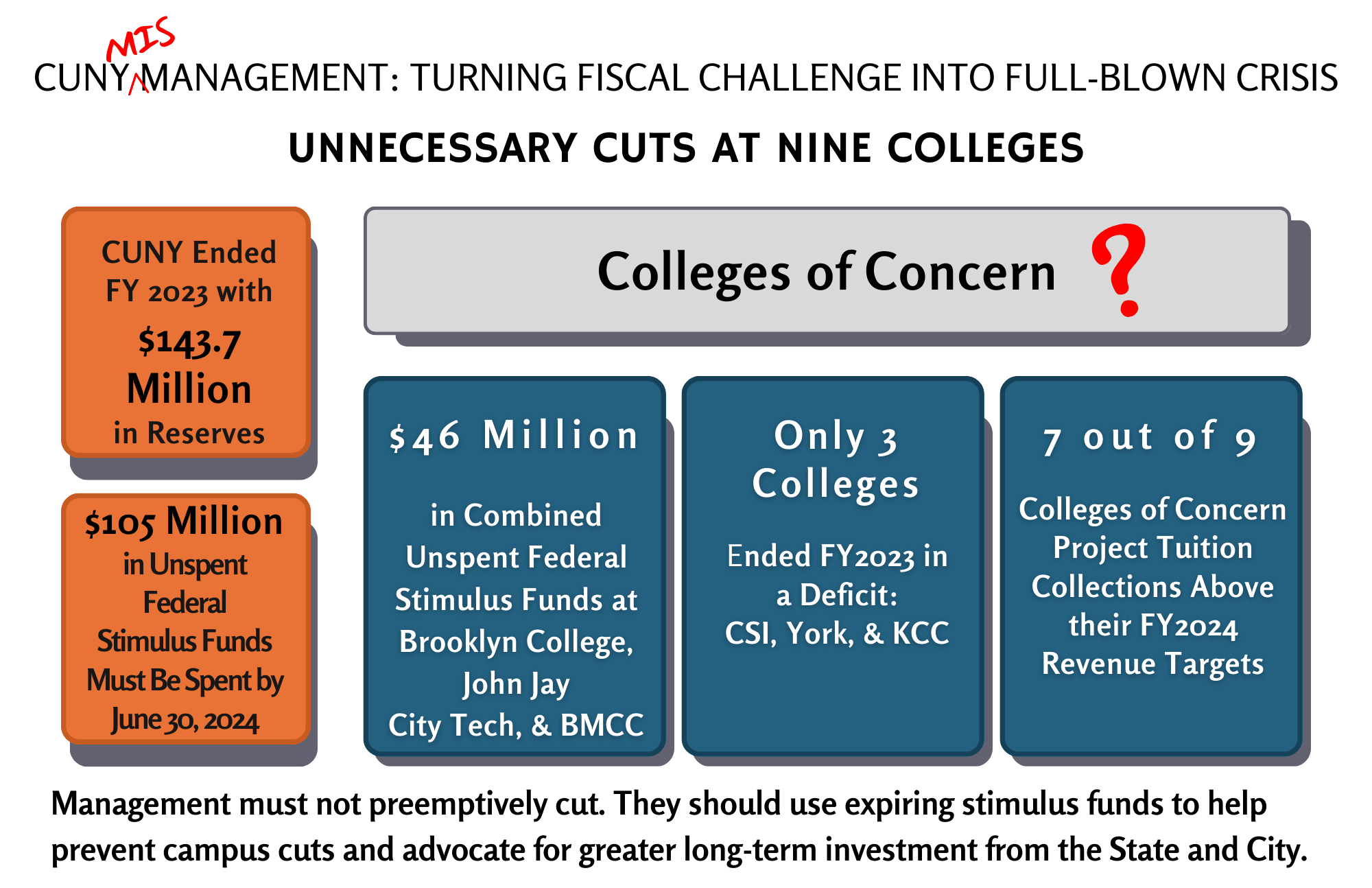
Management must not preemptively cut. They should use expiring stimulus funds to help prevent campus cuts and advocate for greater long-term investment from the State and City.
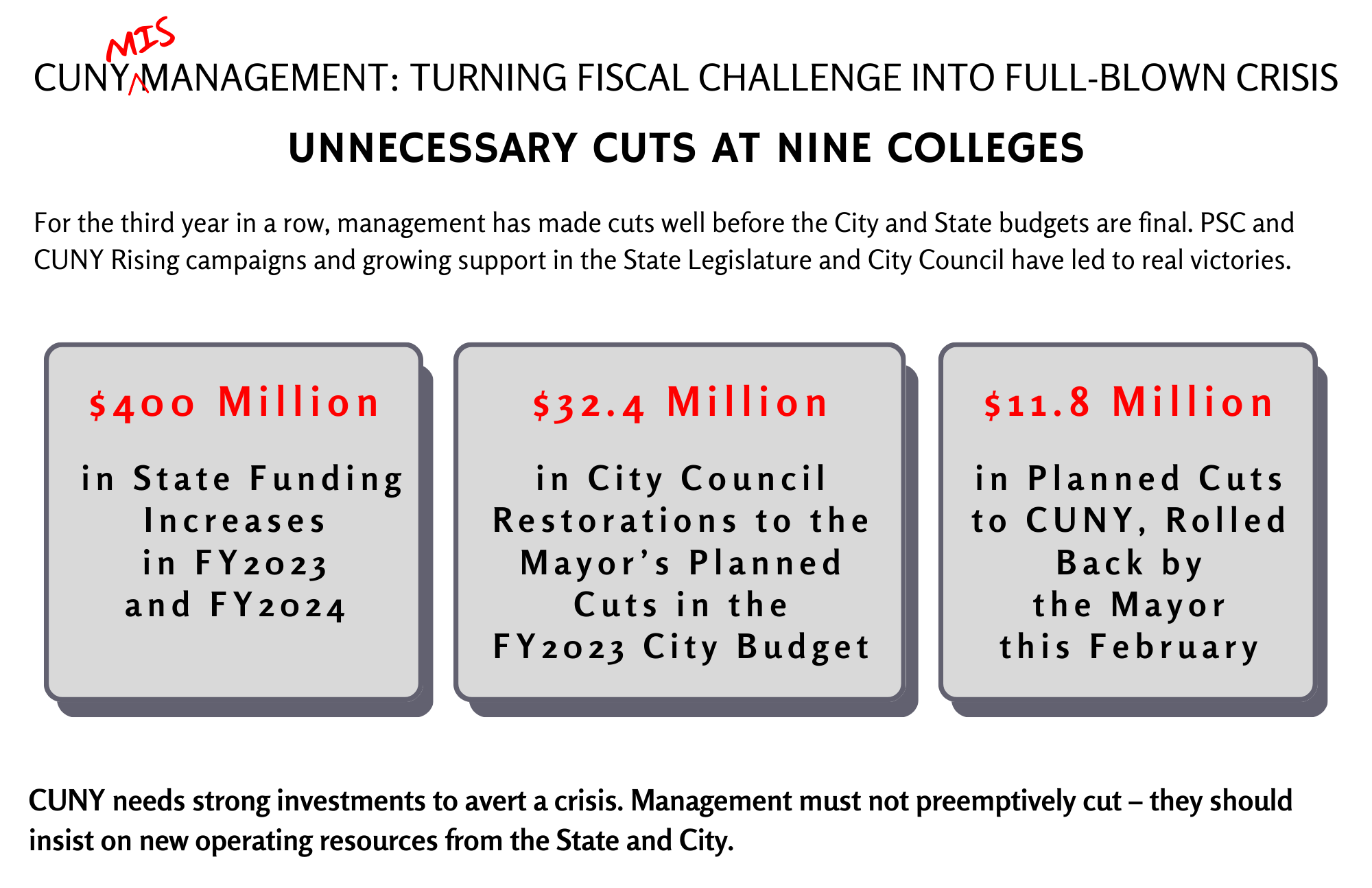
For the third year in a row, management has made cuts well before the City and State budgets are final. PSC and CUNY Rising campaigns and growing support in the State Legislature and City Council have led to real victories.
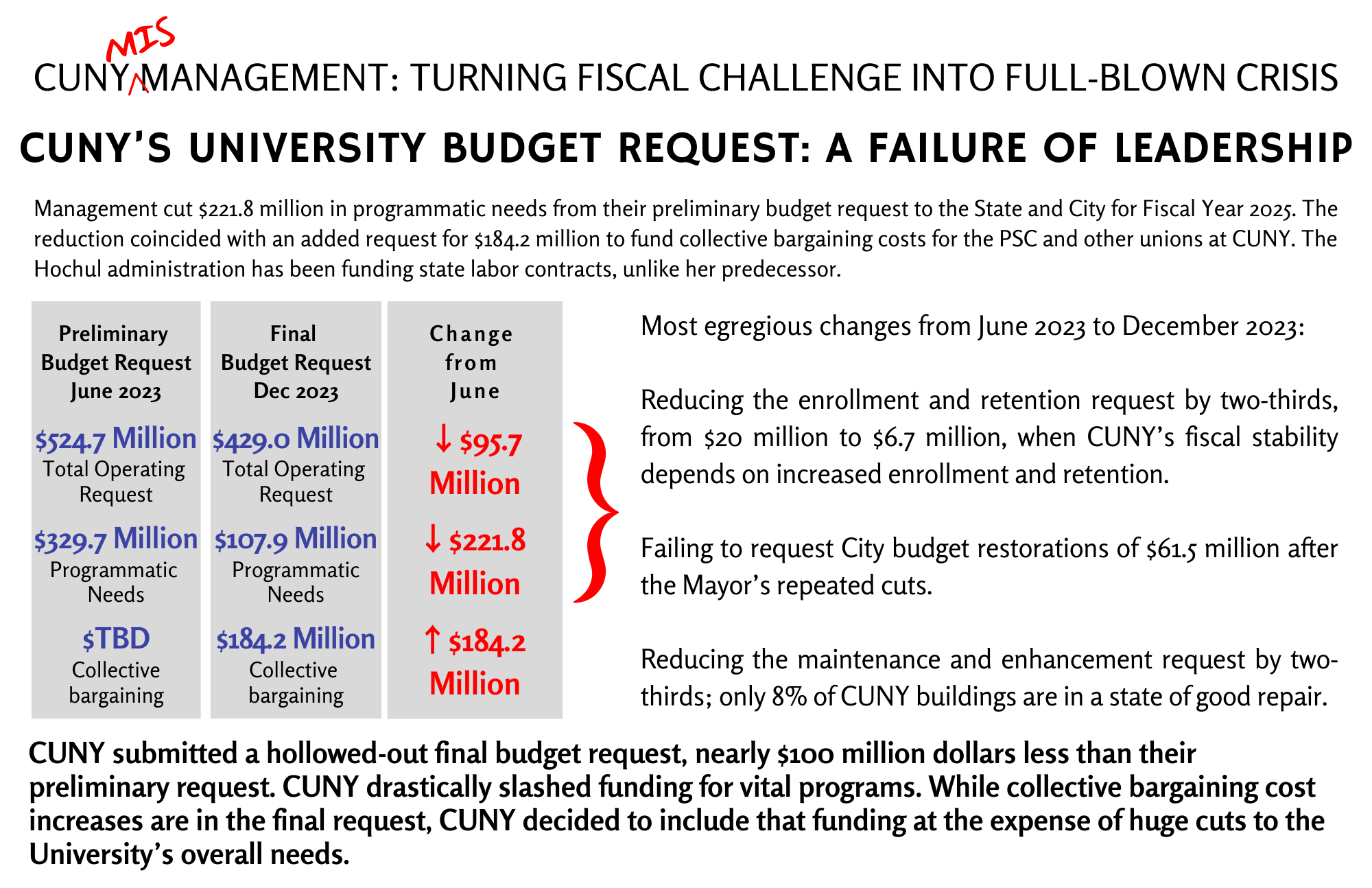
CUNY submitted a hollowed-out final budget request, nearly $100 million dollars less than their preliminary request. CUNY drastically slashed funding for vital programs. While collective bargaining cost increases are in the final request, CUNY decided to include that funding at the expense of huge cuts to the University’s overall needs.
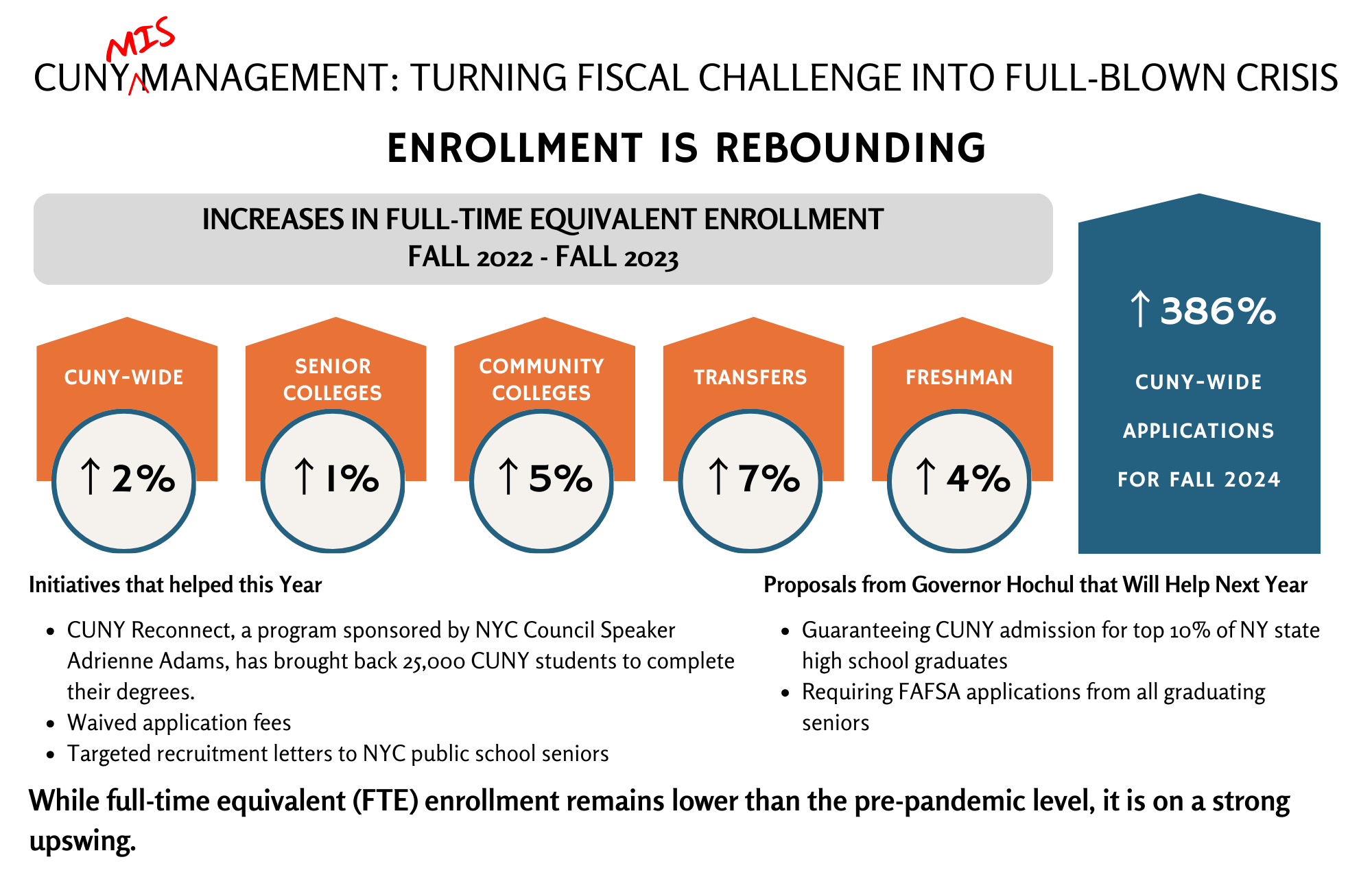
While full-time equivalent (FTE) enrollment remains lower than the pre-pandemic level, it is on a strong upswing.
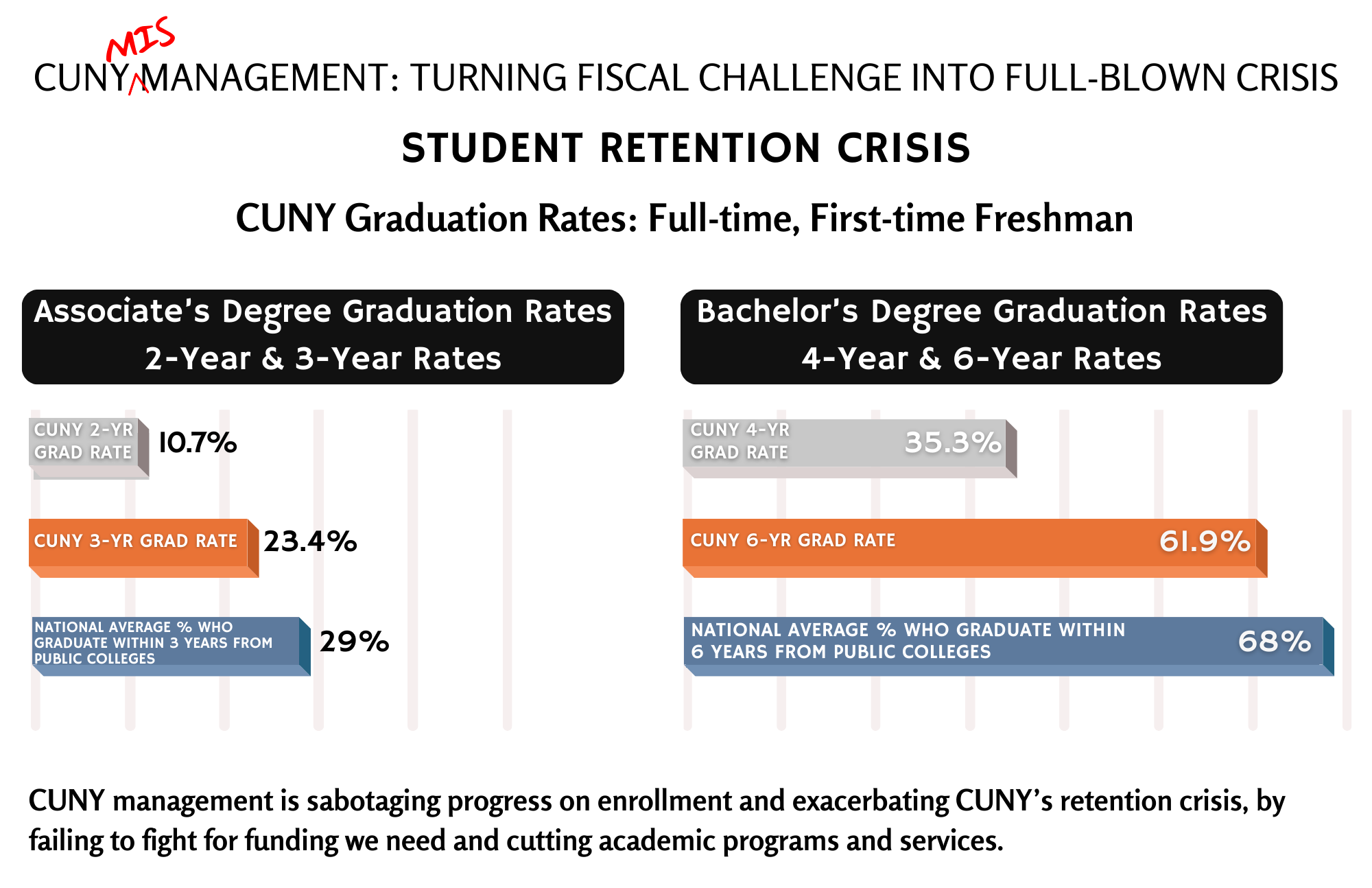
CUNY management is sabotaging progress on enrollment and exacerbating CUNY’s retention crisis, by failing to fight for funding we need and cutting academic programs and services.
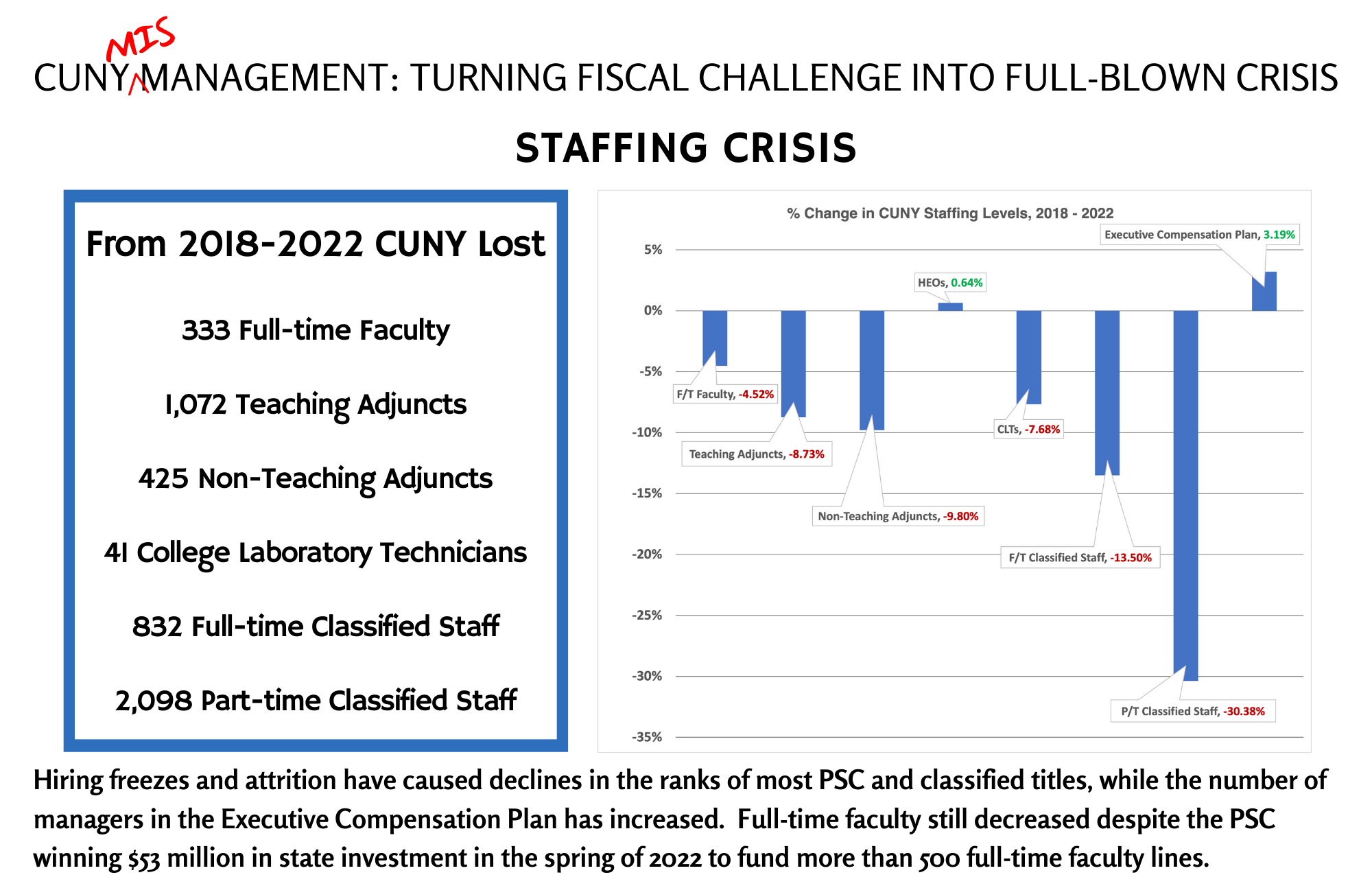
Hiring freezes and attrition have caused declines in the ranks of most PSC and classified titles, while the number of managers in the Executive Compensation Plan has increased. Full-time faculty still decreased despite the PSC winning $53 million in state investment in the spring of 2022 to fund more than 500 full-time faculty lines.
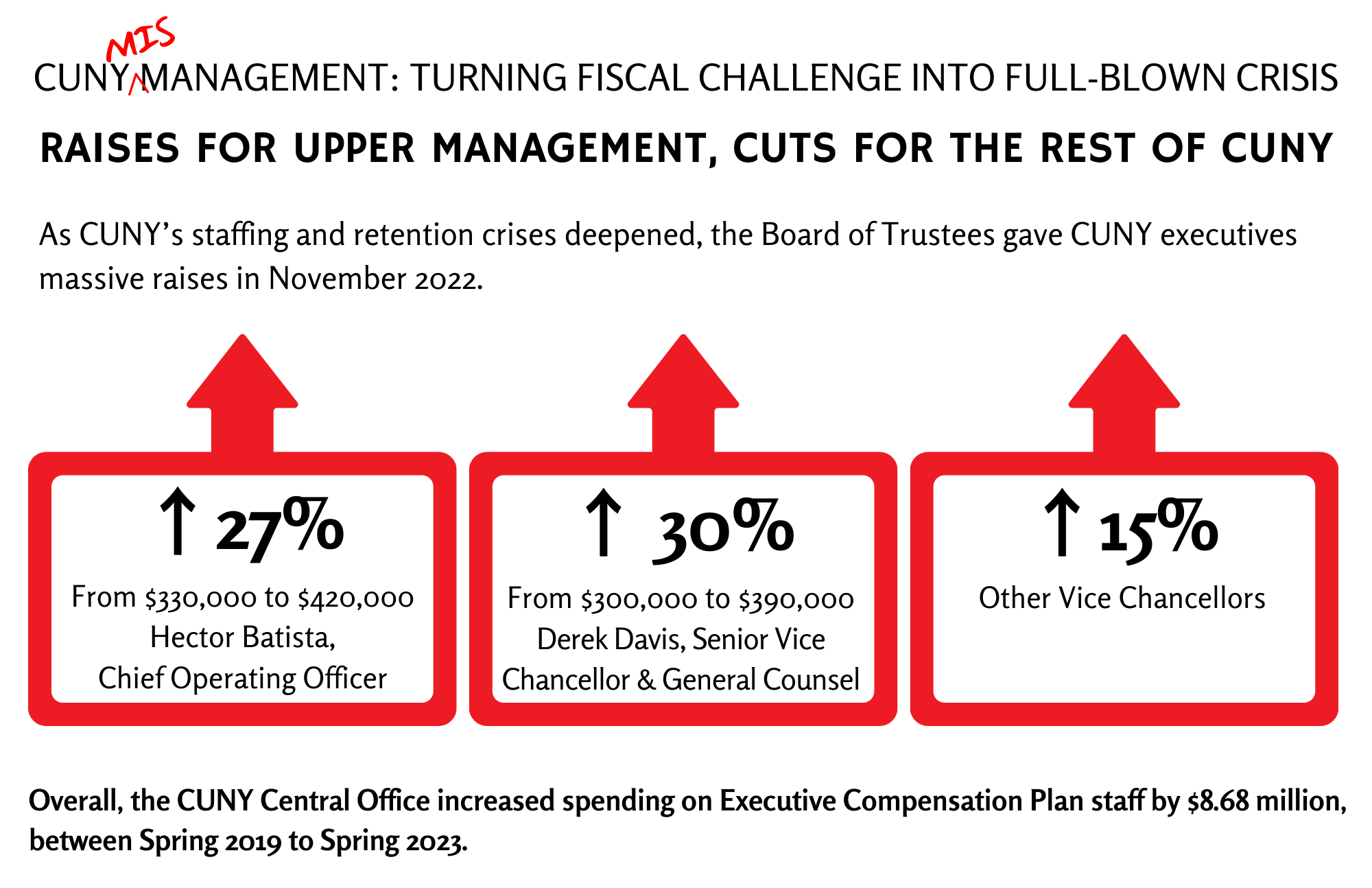
Overall, the CUNY Central Office increased spending on Executive Compensation Plan staff by $8.68 million, between Spring 2019 to Spring 2023.

